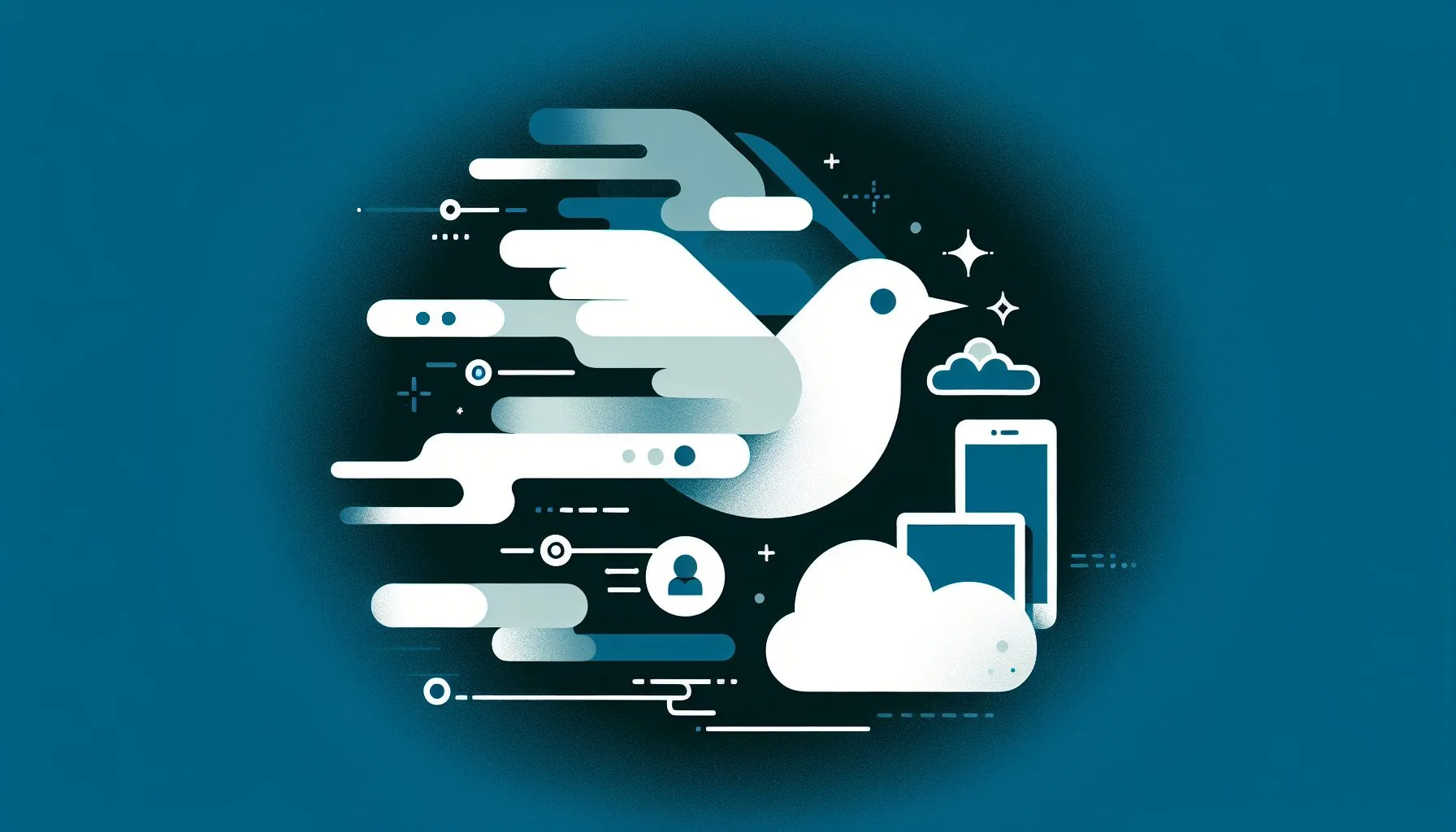Interesting Facts
Have you noticed a subtle shift in your Twitter feed lately? Perhaps there are fewer familiar voices or the lively discussions you once enjoyed have quieted down. You’re not alone in sensing this change. The question “Are people canceling Twitter accounts?” has become a common topic of conversation. But answering it is not as straightforward as a simple yes or no. Instead, it’s a complex trend woven from evolving user expectations, shifts in platform management, and the broader dynamics reshaping social media today. Let’s take a thoughtful look behind this recent wave of account cancellations and explore what it might mean for the future of online conversation.
A Wave of Departures: What’s Behind the Numbers?
Ever since Elon Musk took over Twitter in late 2022, there’s been a noticeable surge of users canceling or deleting their accounts outright. This exodus has caught the attention of journalists, digital analysts, and even insiders within the platform itself. But what prompts someone to walk away from a service that once held their interest so firmly? For more insights into this phenomenon, refer to the detailed analysis on X sees largest user exodus after Musk takeover.
One of the main reasons users mention is dissatisfaction with new policies introduced after the ownership change. Imagine coming back to a favorite game only to find the rules rewritten in ways that don’t make sense or feel unfair. That’s the kind of frustration many experience with Twitter’s evolving content guidelines and moderation practices. Some users feel moderation has become unpredictable or uneven, particularly regarding controversial or harmful speech. This, in turn, chips away at the sense of safety and welcome many once found on Twitter.
Changes to account verification and subscription systems have also played their part. New hurdles and fees to access features once free have left some feeling sidelined or disillusioned. When the ways you can participate shift suddenly and without clear benefit, enthusiasm can fade fast. For effective ways to manage your Twitter account status, you might want to check guidance on How to register on Viralaccounts.
Beyond policies on paper, many people talk about a rise in hostile interactions and harassment. Twitter launched with the promise of being a place where anyone’s voice could be heard. Yet for some, that promise has dimmed amidst growing negativity or aggression. Facing frequent conflict online becomes draining, even overwhelming, leading many to step away for their own peace of mind.
The Broader Context: 2024 Social Media Trends
This outflow of users from Twitter is part of a bigger story unfolding across social media. In recent years, people have grown more aware of how different platforms affect their mental health, privacy, and overall experience. Instead of remaining loyal to a single giant, many are searching for communities that feel more thoughtful, less chaotic.
That’s where the rise of alternative, often text-focused, social networks comes in. These newer platforms emphasize calm and meaningful conversation, aiming to foster smaller, tighter-knit communities. Users describe them as quieter, more respectful spaces, free from the noise and polarization that can overwhelm larger sites like Twitter. Recently, articles such as X, Elon Musk, and the fragmentation of social media provide further discussion about this trend.
Rather than turning their backs on digital interaction altogether, users are migrating toward places better aligned with their values and needs. This shift is not about abandoning social media but evolving how we connect in an increasingly complex digital world.
The Psychological Side: Why Canceling an Account Is More Than Clicking Delete
At first glance, deleting a Twitter account might seem like a simple, even trivial, action. But the psychology behind this choice reveals it’s far from easy. Many of us build digital attachments without fully realizing it. Twitter isn’t just a stream of tweets; for many, it’s where friendships grew, passions flourished, and communities provided comfort.
Leaving such a space means confronting what’s at stake—not just in practical terms but emotionally. Users often describe a mix of relief and sadness. Relief in escaping harassment or frustration, sadness in closing a chapter that once held meaning.
This mirrors how we respond to change in cherished aspects of our social lives. It helps explain why some users deactivate their accounts temporarily, unsure if they will return or move on permanently. The decision to part ways with a digital community carries real emotional weight.
What Does This Mean for Twitter and Its Future?
These waves of account cancellations have deeper implications than just shrinking numbers. Twitter’s vitality depends heavily on an active, engaged user base. When people leave en masse, the platform feels less vibrant and loses its appeal to advertisers, influencers, and loyal followers alike.
The departure of diverse voices leaves conversations less rich and the community smaller. This dynamic can, ironically, speed up user decline—the more people leave, the fewer reasons remain for others to stay.
Still, Twitter holds significant sway in certain arenas. It remains central to breaking news coverage, social activism, and real-time public debate. Even with some users stepping back, the platform continues to play a vital role on the digital stage.
Moving forward, Twitter’s leadership faces challenging questions. How do you balance openness and free speech with safety and respect? How does the company innovate without alienating its founding users? Can monetization efforts be pursued without compromising user experience? The answers may determine whether the platform regains stability or continues to see declines.
Perspectives from Real Users: Stories Behind the Exodus
Statistics only tell part of the story behind Twitter account cancellations. Hearing from users themselves adds essential nuance.
One person recounted how repeated harassment on a topic close to their heart made Twitter unbearable. “It felt like walking into a room where every conversation stoked frustration instead of understanding,” they explained. Leaving led them to a smaller, moderated community where discussions stayed respectful. This change restored their enjoyment of online connection.
Another long-time tweeter spoke sadly of the platform’s shifting tenor after the ownership change. “I loved following authors and activists, but suddenly the soul of the platform felt different. Conversations fractured, engagement dropped. It made me wonder if it was worth staying.” For users interested in selling or buying Twitter accounts, services like Viralaccounts sell Twitter account offer avenues for account transactions.
These stories remind us each canceled account is not just data but a human experience shaped by evolving digital realities.
What About Those Who Stay? Resilience or Resignation?
While many leave, countless others remain on Twitter. This brings an interesting contrast. Are these users adapting the platform to their needs, or simply enduring conditions they find less than ideal?
Some adopt careful engagement strategies — muting or blocking toxic accounts, curating their feeds to foster positivity. This careful navigation shows resilience: a choice to reclaim parts of the space despite its challenges.
Yet there can also be a creeping resignation. When negativity becomes normalized, users might slowly disengage or reduce activity without outright leaving. This gradual erosion can be just as damaging to community health as rapid departures.
Lessons Learned: What Can Other Platforms Take Away?
Twitter’s struggles hold lessons beyond any single site. They show just how crucial it is for social platforms to listen closely to their users, balancing innovation with clear communication and addressing harmful behaviors decisively.
More fundamentally, users today are no longer captive audiences. They hold the power to choose platforms matching their values and well-being. They ‘vote’ with their attention, usernames, and dollars.
The social media landscape of 2024 reminds us digital communities live or die by their ability to foster inclusivity, respect, and genuine dialogue. Platforms ignoring this risk fading quietly from relevance.
Looking Ahead: Will Twitter Regain Lost Ground?
Predicting Twitter’s future feels a bit like forecasting the weather: change is always possible. The platform faces undeniable challenges but retains unique strengths and a core audience.
If Twitter addresses the concerns driving departures — rethinking moderation, strengthening user protections, and improving transparency — it may slow or even reverse the trend. Some former users could return when the environment feels more welcoming once again. For professional advice on social media account management, see online talent management services.
Yet the rise of alternative networks means competition is fiercer than ever. User loyalty can’t be taken for granted.
Twitter’s road ahead is uncertain, shaped by choices made by its leaders and the communities who choose to engage or leave.
In Conclusion: More Than Just an App
Canceling Twitter accounts means more than tapping a button. It reflects changing relationships with technology, community, and how we communicate. The recent user exodus underscores new expectations: spaces online should be safe, respectful, and meaningful.
For those leaving, it’s often both a relief and a farewell tinged with nostalgia. For those staying, adaptation continues in the face of ongoing challenges.
Above all, this moment in social media highlights our human need for spaces where voices matter without fear or fatigue. Whether on Twitter or beyond, that need will keep shaping the digital world for years to come.
Explore Our Expert Services to Navigate Social Media Changes
Why are people canceling their Twitter accounts?
People are canceling their Twitter accounts mainly due to dissatisfaction with new policies, increased harassment, changes in verification and subscription fees, and a shift toward more respectful, calmer social media spaces.
Is the Twitter user exodus linked to Elon Musk’s ownership?
Yes, the surge in account cancellations coincided with Elon Musk’s takeover in late 2022, which brought policy changes and platform shifts many users found frustrating or unfair.
Will Twitter recover from the user cancellations?
Twitter’s recovery depends on balancing free speech with safety, improving moderation, and addressing user concerns transparently. The platform may regain users if these challenges are met, but competition is fierce.

